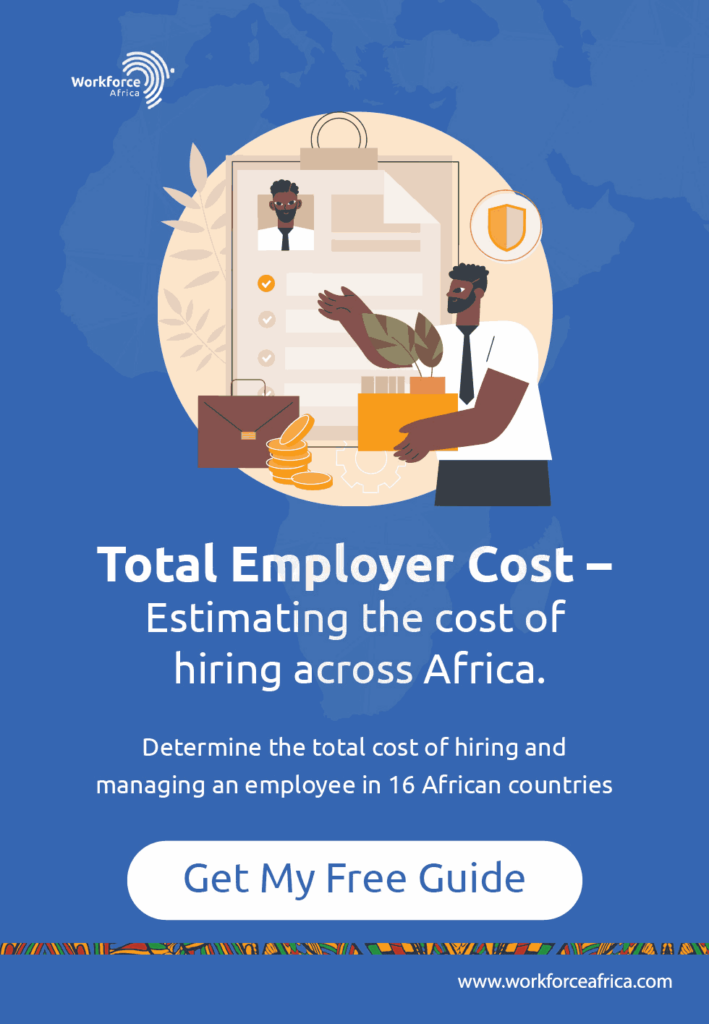
- hello@workforceafrica.com
- +234 816 305 6589
- +234 903 194 6744

Non-governmental organizations (NGOs) are pivotal in addressing Africa's critical social and humanitarian issues.
This article explores the vital operational challenges facing NGOs in Africa and provides strategies to overcome these obstacles effectively.
Civil society, including non-governmental organizations (NGOs), holds significant importance, particularly in supplementing government initiatives to deliver essential public goods and services.
In regions grappling with severe conflict, the role of NGOs becomes even more critical, especially in situations where state institutions struggle to provide social services due to breakdowns in governance or the impacts of war on citizens' lives and livelihoods.
Conversely, the freedom of NGOs to operate and carry out programs within a country serves as a crucial gauge of the level of respect for civil liberties within that nation.
Non-governmental organizations (NGOs) are pivotal in addressing many African issues, such as poverty, political instability, food insecurity, and inadequate healthcare and education systems.
The post-pandemic era has seen a notable surge in NGOs operating within African nations to mitigate the pandemic’s collateral damage to communities and economies.
Expanding into Africa presents these NGOs with the challenge of comprehending diverse cultures, histories, legacies, and populations while navigating intricate legislative and compliance frameworks across Africa.
For NGOs contemplating extending their reach across Africa, partnering with an Employer of Record can prove invaluable in establishing a sturdy foundation for their entity’s expansion.
Expanding your NGO's operations and mission in Africa can pose significant challenges, particularly when navigating intricate international regulations.
The challenges faced by NG0s in African countries are numerous and varied. They include the political instability of target countries and, most often, how to compliantly manage talent in such countries.
Here are some of the challenges facing NGOs in Africa:
One of the challenges for international NGOs is entity registration and fulfilling all criteria stipulated by local legislation to gain operational eligibility.
However, the registration process presents significant challenges, including the consumption of time, finances, and resources—commodities are often scarce for NGOs, necessitating swift action to serve their beneficiaries and overarching mission.
For instance, registration requirements commonly entail the provision of a physical local address and establishing a local bank account, prerequisites that prolong the application process.
Often, these procedures delay full approval by local authorities. Such prolonged timelines can be inconceivable for certain NGOs operating within pressing humanitarian contexts.
Recommended Post: Expand into African Markets with Ease Using an Employer of Record
When a non-governmental organisation (NGO) extends its reach to a new country, its primary objective is to instigate social change and broaden its influence.
However, the reality of NGO expansion entails a more intricate situation.
One of the problems of NGOs in Africa is that they find themselves divided between their philanthropic endeavours and the essential task of managing internal operations.
These internal responsibilities encompass various HR functions, such as employee onboarding, benefits administration, and payroll management.
Neglecting these internal operations could lead to organisational instability and potential collapse.
Conversely, if internal operations demand excessive resources, the NGO's challenge will be how to fulfil its core missions effectively.
Therefore, establishing the right balance between internal management and external impact is essential for an NGO's sustained success.
As NGOs transition into a new African community, often vastly distinct from their own, they inevitably encounter cultural disparities.
This cultural gap is particularly evident when engaging a multicultural team, whose cultural perspectives and work expectations may diverge from the NGO's preconceptions.
Potential friction and discontent among staff can arise without a thorough understanding and appropriate accommodation of these differences.
As an NGO, once your reputation is tarnished, its restoration can prove challenging. If local authorities discover non-compliance with the law, sanctions may ensue, typically in the form of fines or other measures prescribed by local regulations.
Such repercussions can severely impact your NGO's reputation, undermining the perceived goodwill associated with your organization.
Consequently, soliciting donations and earning donor trust may become more complex. All of this could stem from a compliance oversight you may have been unaware of.
To achieve their vision, NGOs rely on skilled workers. Frequently, NGOs opt for contract workers to meet their labour requirements. However, many NGOs must know that this approach exposes them to misclassification risks, constituting a core compliance issue.
Misclassification arises when contract workers perform duties akin to employees but do not receive the corresponding benefits.
In numerous African countries, this amounts to a significant violation of labour laws, potentially resulting in fines for your NGO if found guilty.
Suggested Post: 9 Employment Laws in Nigeria that Sketch the Labour Landscape
Addressing the challenges faced by humanity often compels non-governmental organizations (NGOs) and nonprofits to enter new environments and economies.
NGOs offer humanitarian assistance to regions affected by conflict, aid in establishing educational and infrastructural frameworks, and provide relief during natural disasters and outbreaks.
Below are four strategies to overcome operational hurdles NGOs experience in their African expansion project:
Testing the viability of new markets.
Ensure adherence to evolving regulatory frameworks across Target African countries.
Recruit and retain skilled talents dedicated to supporting your organization's mission.
Adopt a centralised vendor management system.
Testing international countries before expansion empowers NGOs to adapt their programs, navigate local challenges, and make informed decisions to bolster long-term effectiveness and sustainability.
This approach ensures that initiatives resonate with the local community's needs while remaining aligned with the organisation's mission and values. In some cases, African environment may present unique demands and challenges that are not immediately apparent.
Conducting preliminary assessments or pilot programs enables NGOs and non-profit ventures to identify the specific requirements of the target demographic, allowing them to customise their services for increased efficacy.
Hiring and managing a cross-cultural virtual team to help with this task in the target country is effective using an employer of record (EOR), which can streamline the process and mitigate the administrative burdens associated with recruitment and payroll management.
Testing the markets serves another purpose: ensuring the success of your endeavours. NGOs are frequently held responsible by donors and beneficiaries for the efficacy of their initiatives.
Market testing offers a chance to collect data, assess program impact, and make informed decisions backed by evidence before expanding operations.
NGO projects demand extensive planning and execution. A crucial aspect of this international expansion often involves forging partnerships with payroll providers, HR support services, entity setup, and other essential elements.
However, managing these relationships across multiple countries can swiftly become burdensome as your operations expand.
Collaborating with a singular point of contact for all your international expansion endeavors minimizes the time, effort, and energy expended, allowing you to focus more on advancing your mission.
An ideal partner in Africa should adeptly handle all legal intricacies, alleviating your concerns regarding administrative burdens as you expand across the continent.
The labour laws in the African landscape are complex, particularly with shifts in leadership and administration within countries. Managing employment laws and ensuring full compliance becomes daunting during NGOs' expansion.
For instance, to stay compliant, NGOs need to harness their resources, expertise, and unwavering commitment to address critical challenges, ultimately impacting the country’s healthcare landscape.
Collaborating with a global expansion partner can enhance your understanding of legal requirements and potential obstacles to operating across your choice of countries across Africa.
This encompasses compliance with HR and payroll regulations, contractor classification, and contract negotiations.
For an international NGO to be compliant when expanding across Africa, it can:
Establish a legal entity in the new markets
Occasionally, NGOs patch together legal entities across different countries as they expand, resulting in costly inefficiencies and redundant processes.
An expansion partner can help assess the entity's needs and understand the process, costs, and risks associated with various types and structures of local registration.
Utilise an Employer of Record (EOR) provider
An EoR provider helps the NGOs hire and manage talent compliantly in the new countries.
This approach also offers a flexible HR solution, enabling the entity to adjust its workforce size according to project requirements, timelines, scope, and available funding.
Securing the right talent with the necessary skills in suitable locations is paramount to your organisation's success. However, NGOs need local HR proficiency to recruit cross-cultural virtual teams.
Recruiting top talent in Africa to expand your organisation's reach is sacrosanct. It demands meticulous planning, a dedication to diversity and cultural awareness, and an emphasis on professional qualifications in alignment with your organisation's values.
Identifying qualified individuals who are passionate about your mission and values is crucial. Yet, attracting and retaining top talent can pose challenges in a competitive landscape where NGOs vie with the corporate sector.
Engaging a firm like Workforce Africa, equipped with extensive local knowledge and networks of pre-screened candidates, can facilitate the identification of the most suitable candidates, even for positions that are challenging to fill.
NGO projects demand extensive planning and execution. A crucial aspect of this international expansion often involves forging partnerships with payroll providers, HR support services, entity setup, and other essential elements.
However, managing these relationships across multiple countries can swiftly become burdensome as your operations expand.
Collaborating with a singular point of contact for all your international expansion endeavors minimizes the time, effort, and energy expended, allowing you to focus more on advancing your mission.
An ideal partner in Africa should adeptly handle all legal intricacies, alleviating your concerns regarding administrative burdens as you expand across the continent.
Non-Governmental Organizations (NGOs) play a crucial role in driving positive societal change, yet they often face bureaucratic challenges when establishing legal entities.
Partnering with an Employer of Record (EOR) firm like Workforce Africa can be instrumental in helping them overcome these challenges facing NGOs in Africa, allowing them to concentrate on their core mission.
Workforce Africa's expertise enables NGOs to streamline operations, ensure legal compliance, and extend their reach to new territories.
In today's fast-paced world, urgent issues demand prompt and efficient solutions, and our EOR services empower NGOs to make a meaningful difference without being burdened by administrative complexities.